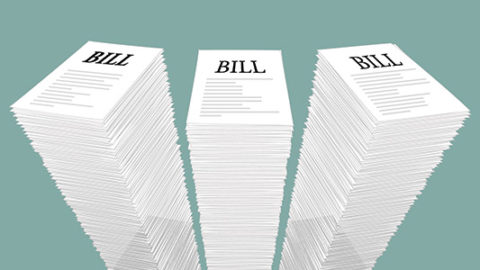Private Equity Poses Grave Threat to Health Care System

TOPLINES
Operating largely beneath the public and regulatory radar, private equity firms have gravitated toward health care over the past decade in pursuit of outsized profits. Investments jumped 189% between 2010 and 2019, from $41 billion to $120 billion, and have totaled $750 billion over the last decade.
Health care acquisitions now represent 18% of all private equity investments, up from 12% in 2010. Key acquisition areas include outpatient care, home health, emergency medicine, dermatology, hospice and elder and disabled care.
Of course, it should come as no surprise that private equity has gravitated to health care. The health care sector is rife with economic distortions and outright market failures that allow unscrupulous actors to earn outsized returns if they are willing to act aggressively and ignore the public good.
Private equity’s expanding presence in health care has increased purchaser costs, fueled a dramatic rise in surprise billing, undermined competition and threatened markets already diminished by the pandemic.
Surprise Medical Bills: A Major Market Failure
Many surprise bills are triggered by private equity business models that intentionally withhold provider groups from insurer networks to extract maximum out-of-network payments from patients. As such, they represent a major market failure in our health care system, one that has imposed punishing bills on unsuspecting patients and added more than $40 billion in additional costs for those with employer-sponsored insurance.
Congress passed the No Surprises Act last year to put an end to surprise medical billing. But just how effective the law will be remains to be seen. Much will depend on how regulators interpret and implement the act’s legislative intent. The rulemaking process is required to wrap up in December 2021 and the law is scheduled to take effect in January 2022.
With the details of the implementation guidelines still very much in flux, legislators need to step in to ensure that the final rules truly protect consumers and produce lower overall costs for purchasers.
Highly Leveraged “Roll-Up” Acquisitions
Along with the damage done by surprise billing, private equity’s go-to business model also undermines the system by focusing on rapidly increasing revenues through highly leveraged “roll-up” acquisitions across markets or regions. Researchers say the approach destabilizes already fragile markets by increasing consolidation, undermining competition and amplifying anticompetitive practices.
Aggressive acquisition strategies, researchers argue, also infuse significant risk into health care markets by loading providers with debt, stripping them of assets and putting them at risk for long-term failure.
While the 2020 closure of Hahnemann University Hospital, a 500-bed teaching facility in Philadelphia, was driven by multiple financial problems over decades, private equity ownership during the hospital’s final years led to a closure process that was “chaotic, uncoordinated and fundamentally not aligned with the needs of the patients and trainees that make up the core constituents of a teaching hospital.”
Approximately 175 nurses, managers and support staff were laid off a little over a year after the hospital was acquired by American Academic Health System LLC. Despite a cease and desist order prohibiting any action toward closure, the owners began cutting vital hospital services, including trauma and cardiothoracic surgery. With the closure that soon followed, the community lost a vital safety net facility that had handled more than 50,000 emergency department visits per year in an underserved area.
The 171-year-old hospital’s unraveling at the hands of a private equity firm prompted an unusually blunt statement of condemnation from Pennsylvania Governor Tom Wolf and Philadelphia Mayor Jim Kenney: “The situation at Hahnemann University Hospital, caused by CEO Joel Freedman and his team of venture capitalists, is an absolute disgrace and show a greed-driven lack of care for the community.”
New Controls Needed
As the situation in Philadelphia showed, private equity investments are often beyond the reach of government oversight. The vast majority of health care deals are unreported, unreviewed and unregulated under existing law. And even when transactions are reportable, researchers say, the complex structure of private equity funds conceal the competitive impact of those deals.
Beyond working to ensure that implementation of last year’s No Surprises Act fulfills congressional intent of halting surprising billing and lowering overall health care costs, an array of other approaches for mitigating the destructive impact of private equity is needed. These include more aggressive anti-trust enforcement by the Federal Trade Commission and greater scrutiny of health care mergers by the Department of Health and Human Services. Further, Congress can take action by enacting policies to ban anti-competitive contracting practices that have driven up health care costs in cities all over the country.



